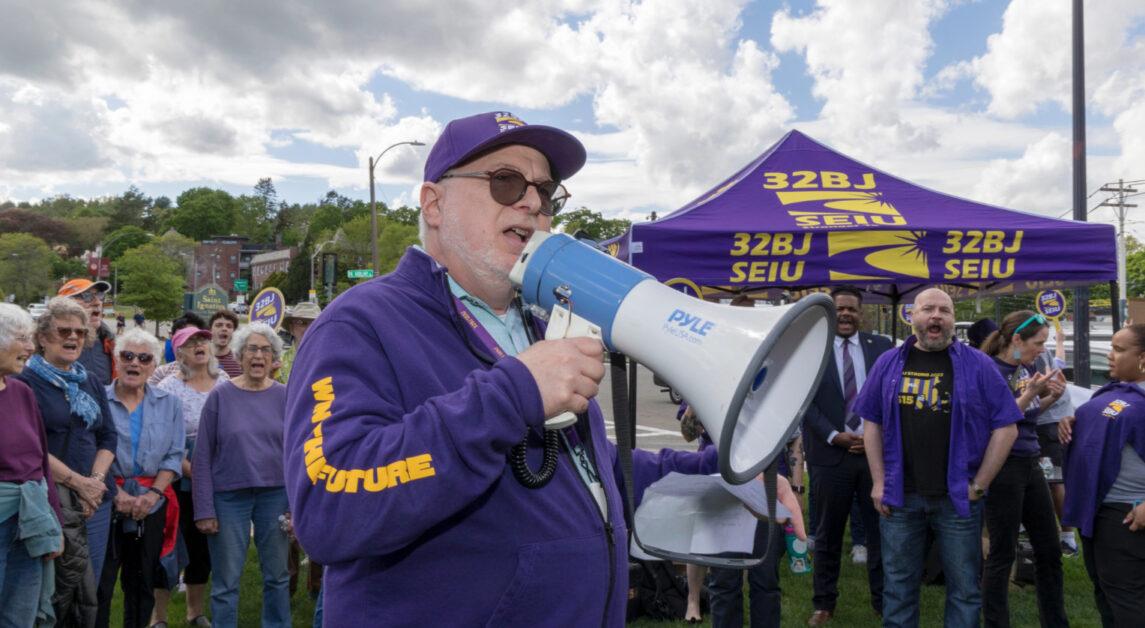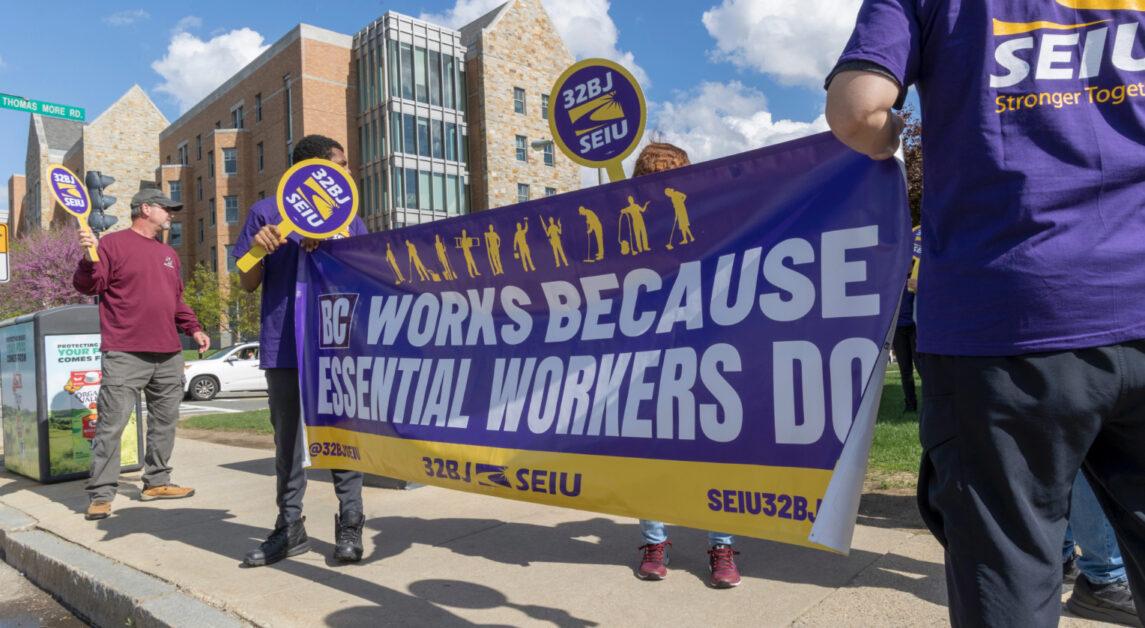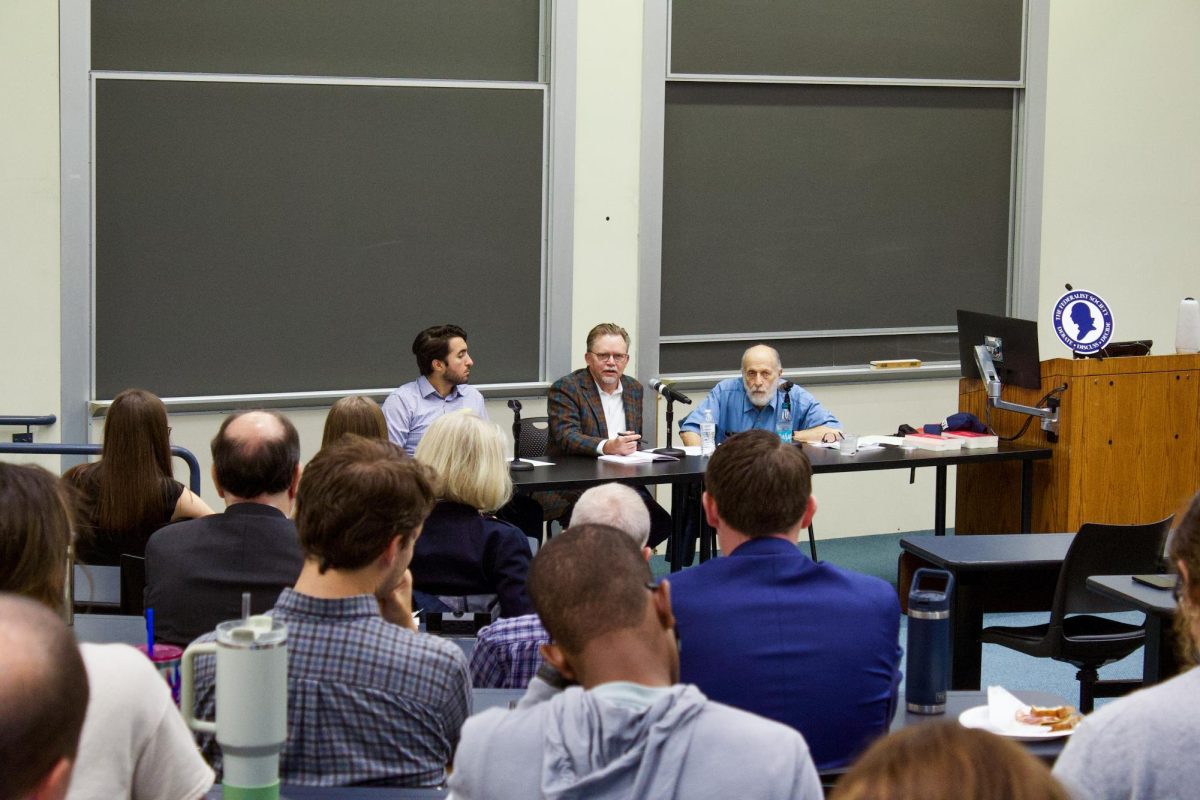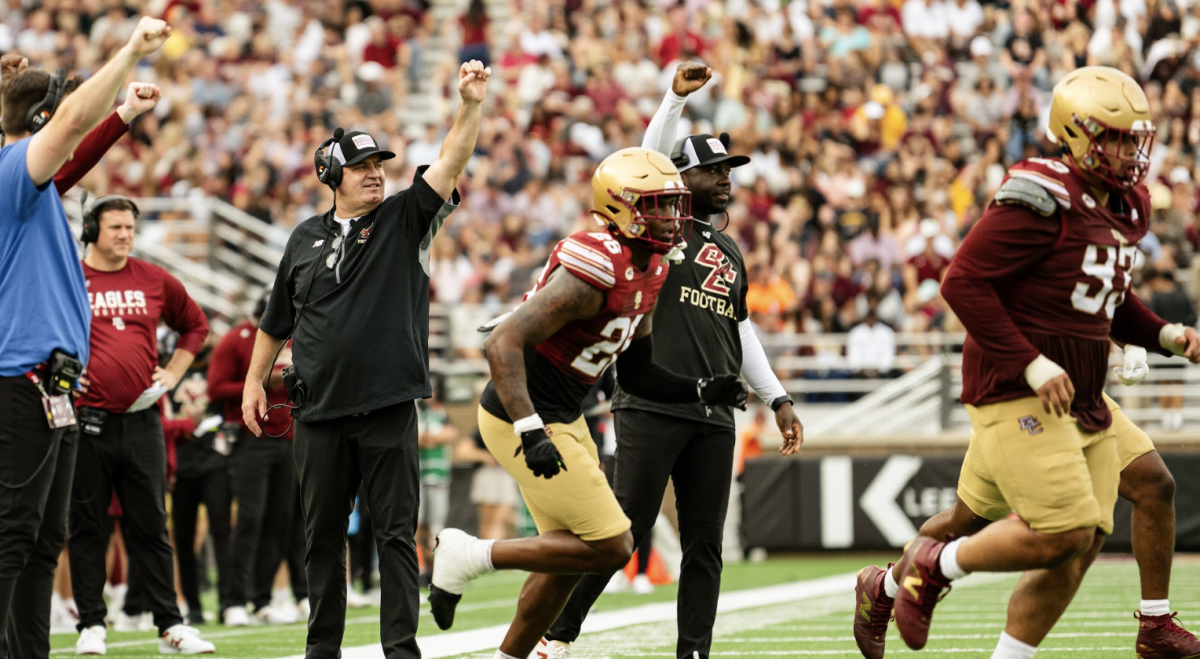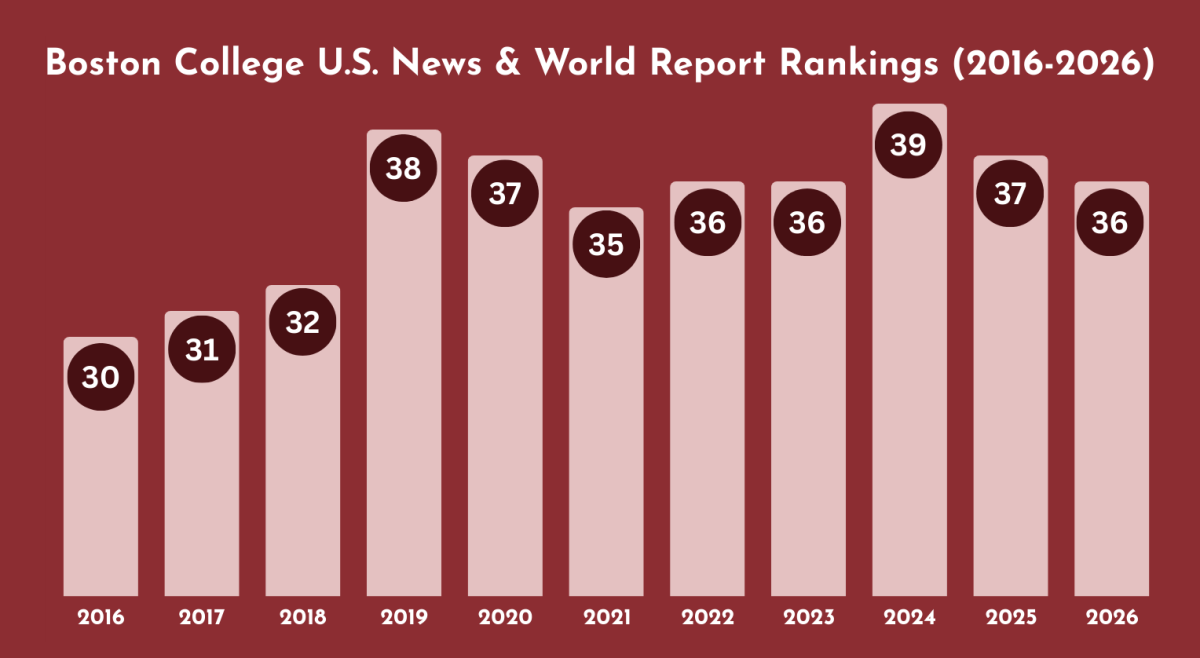Employees, students, faculty, and community members gathered across from St. Ignatius Church Wednesday afternoon to call on Boston College to raise wages and increase training funds for facilities workers amid ongoing contract negotiations.
“[BC’s] great mission is ‘to live in the service to others,’ now what does that mean for us?” said Kevin Brown, executive vice president of 32BJ Service Employees International Union.
The union’s current contract is set to expire on May 31.
Brown opened the rally by calling on the University to acknowledge the contributions of union members by providing fair, reasonable wages.
“We need to make sure that our hard working members are appreciated by those in charge here at Boston College,” Brown said.
Boston City Councilor Henry Santana also attended the rally, emphasizing that facilities workers are the backbone of an institution. He called on the University to give that same effort back with fair wages.
“So I’m asking BC—this beautiful, rich institution—to fight and give you all a fair wage,” Santana said. “You guys make BC work, you guys clean BC, you guys are in the mail room, you guys are giving services to our students, and I want to make sure that I come out here and show my support.”
BC Law Professor Hiba Hafiz read a speech written by Leah Cohen, BC Law ’26, highlighting that one of BC’s core values is standing in solidarity with others. The speech argued that failing to negotiate fairly with workers reneges on this core principle.
“I’m sure it’s tempting to take shortcuts—to save a few bucks, to take for granted the workers who come to BC every day to keep the heat on, and the lights lit, and the water running,” Cohen’s speech read. “It’s easier to give each other less than we have to give, but if we give into that temptation and do not negotiate fairly with our workers and do not give everything we can—truly everything—to ensure they are compensated for the value of their work, we weaken the foundations that set this school apart—the reason I came here in the first place.”
In his closing remarks, Brown reiterated that BC’s mission should compel the University to pay fair wages and invest in skills training.
“We cannot stress the importance of both to our members and to the community what it means for people to be able to learn to be a skilled [tradesperson], and we can help people do that with a very minimal contribution from the college,” Brown said. “Living up to that mission means also learning how to bring people up, not just in their wages—their daily wages—but in their skills, so that they have a future for themselves and their family. And that’s really what the union is all about—helping our family and the entire community lift itself up.”
Red Femino, a bargaining committee member and HVAC specialist, emphasized that as BC invests in new technology, the University must also provide the necessary training for staff to learn how to properly maintain it.
“This school is literally moving at the speed of light when it comes to technology, so we need to bring in people who know how to work this school, who know how to fix the mechanics, the day by day, everything in this school, and to do that, we need the money,” Femino said. “We need to get back to where everyone else is in this city.”
The fight for a fair contract doesn’t just rest in the hands of the workers, according to Chris Geissler, an assistant professor of Eastern, Slavic, and German studies, who attended the rally to show his support.
“When organized labor is doing a thing, you show up,” Geissler said. “When I was in grad school, I was part of an effort to organize a union in our place—which has since succeeded—and all different kinds of workers at the university came out in support of us, and I think it’s up to all of us to support each other.”
Hank Fandel, a plumber who has worked at BC for 30 years, said that while he enjoys working at the University, rising costs of living mean workers need salaries that reflect the current economic reality and align with those at peer institutions.
“Everything is going up in costs, and we need to get a living wage that we can actually afford to work at,” Fandel said. “The wages in the area are all higher, and we’re a little behind the eight ball here, so it would be nice to catch up.”
Although negotiations are between the University and facilities, Fandel noted that facilities workers support other departments’ efforts to improve conditions—and now hope for that same support in return.
“We all basically work under the same contract,” Fandel said. “The things that happen in management, a lot of those things are the same things that happen with us. We all pretty much work together. And we try to support other people on the campus that are looking to get things improved, and we just would enjoy some support from our fellow workers.”

